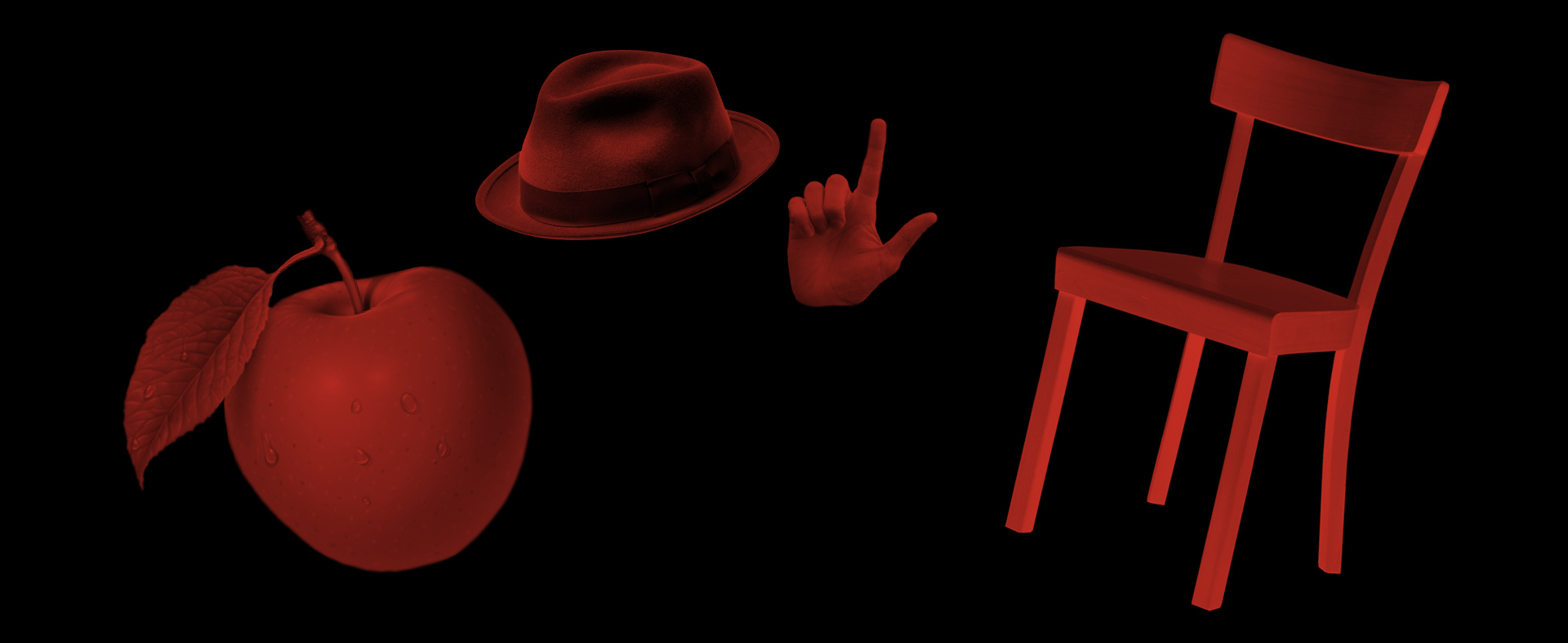
Kurs im GZ Wollishofen: Donnerstag 9.30-11.00
Dein Profit:
– Du kannst deine eigene Kreativität beim Theaterspielen und Schreiben ausleben.
– Du erlebst körperliche Aktivität, Austausch, Spiel und Spass in einer unkomplizierten Gruppe.
– Du lernst, wie Theater und Schreiben vermittelt werden kann.
– Der Kurs ist so gestaltet, dass eine regelmässige Teilnahme für dich und die Gruppe wünschenswert ist.
– Auf Wunsch bekommst du eine Kursbestätigung als Fortbildungsnachweis.
Wir improvisieren, schreiben und tragen vor. Das alles in einem sehr lockeren, entspannten Rahmen, als Reise zu sich selbst quasi. So entfalten wir ein Stück unserer Persönlichkeit und wecken unser kreatives Potential durchs Schreiben, Spielen und (Vor)sprechen. Wer einen Input für berufliche Weiterbildung sucht, ist ebenso richtig in meinen Kursen. Du kannst deinen professionellen Auftritt stärken und Selbstsicherheit für dein nächstes Referat oder deine nächste Rede, deine Beteiligung an einer Mitgliederversammlung oder einem Vereinsabend gewinnen. Über allem steht aber der Spass und der lebendige Austausch in der Gruppe!
Kosten:
GZ Wollishofen
8 Lektionen innerhalb 2 Monate: Fr. 270.00
7 Lektionen innerhalb 2 Monate: Fr. 240.00
6 Lektionen innerhalb 2 Monate: Fr. 210.00
Einzellektion/Schnupperstunde: Fr. 40.00
50% Rabatt mit Kulturlegi

IfE (Institut für Erziehungswissenschaften): Texte, Sprechen, Spiel – Sprechpädagogik und Improvisation im Sprach- und Literaturunterricht www.ife.uzh.ch
Jahrestagung Kinesuisse: Fortbildungsworkshop
IfE (Institut für Erziehungswissenschaften): Spielen satt vorspielen www.ife.uzh.ch
Theater und kreatives Schreiben: Retreat Ftan
Improtheater, Stimme und Schreiben: Retreat Ftan
Improtheater, Stimme und Schreiben: Retreat Ftan
Improtheater, Stimme und Schreiben: Retreat Ftan
IfE (Institut für Erziehungswissenschaften): Texte, Sprechen, Spiel – Theater- und Sprechpädagogik im Literaturunterricht www.ife.uzh.ch
IfE (Institut für Erziehungswissenschaften): Spielen statt vorspielen
Theater und kreatives Schreiben: Retreat in Ftan
IfE (Institut für Erziehungswissenschaften): Texte, Sprechen, Spiel – Theater- und Sprechpädagogik im Literaturunterricht
IfE (Institut für Erziehungswissenschaften): Texte, Sprechen, Spiel – Theater- und Sprechpädagogik im Literaturunterricht www.ife.uzh.ch
PH Zug, Drama in Education Days: Visualize, Experiment, Interpret – A Drama Approach To Poetry dramapaedagogik.de
IfE (Institut für Erziehungswissenschaften): Texte, Sprechen, Spiel – Theater- und Sprechpädagogik im Literaturunterricht www.ife.uzh.ch
Ferienkurs für Kinder Theater Purpur Thema Masken, Kostüme und Geschichten
ETAS AGM: Stories, voice and improvisation www.e-tas.ch
Text, Sprache, Kreativität: Arbeitskreis DaF/DaZ
Dramapädagogik im Fremdsprachenunterricht: Migros Klubschule Luzern
Ferienkurs für Kinder Theater Purpur Thema Zirkus
IfE: Dramapädagogik, Stimmbildung, Rezitation
Dramapädaogik-Tage Hochschule Konstanz: www.dramapaedagogik.de
ETAS: www.e-tas.ch
Institut für Gymnasialpädagopgik IGB
With T. C. Boyle’s novel The Tortilla Curtain as a stimulus, we will explore such issues as migration, identity, dreams, hopes and nightmares. The workshop will provide stimuli to help learners verbalize opinions and lead discussions while being in role or while reflecting on observed scenes. The drama activities will range from simple ways in which drama techniques can be introduced to more demanding tasks analysing some of the themes in Boyle’s novel.
ETAS Ticino
TGIF – Thank God It’s Friday! From that starting-point, participants of the workshop will develop their own stories and explore varieties of them through drama. A number of drama techniques will be shown that help learners verbalize thoughts and ideas – hopefully with more ease! The drama work done in the group can be linked with writing tasks and short-story reading. This workshop is suitable for teachers of intermediate to advanced learners.
Institut für Gymnasialpädagopgik IGB
Would Nick in Hemingway’s short story have joined his father to the Indian Camp if he had known what was going to be ahead of him? How satisfied was he with his father’s answers to his questions? – The end of the text is the beginning of the reader’s exploration. In our workshop, we will venture on a journey of interpretation via drama techniques: characters from short stories on the hot seat, being sent down a conscience alley, dead characters brought back to life, their thoughts tracked – to name but a few. Drama helps students to move away from pure intellectual analysis and approach issues for discussion via physical and emotional involvement. This sets linguistic resources free and helps to acquire new ones through kinaesthetic, visual and auditive learning. The workshop is suitable for teachers of lower intermediate to advanced classes. Age-range: teenagers and adults.
For teenagers and adults
The Antiguan author Jamaica Kincaid portrays the tropic island of her youth in wonderfully critical fiction. Guidebooks reveal their image of the tropical paradise. In our workshop, we will interpret text and visual input via drama techniques: characters on the hot seat, being sent down a conscience alley, their thoughts tracked – to name but a few. Drama helps students to move away from pure intellectual analysis and approach issues for discussion via physical and emotional involvement. This sets linguistic resources free and helps to acquire new ones through kinaesthetic, visual and auditive learning. The workshop is suitable for teachers of lower intermediate to advanced classes. Age-range: teenagers and adults.
English Teacher’s Association of Switzerland ETAS
This workshop will help to define why drama is important for Young Learners’ language learning. It will also focus on how it encourages children in a non-threatening way to communicate both verbally and physically. It will provide ideas and an activity that teachers themselves can take home and put to use in their own classrooms. The workshop is suitable for teachers of very Young Learners and Young Learners: pre-school up to 6th class.
Gesamtschweizerische Tagung für Deutschlehrerinnen und Deutschlehrer Universität Bern
Visueller Input dient als Ausgangspunkt unseres Workshops. Wir bewegen uns von der non-verbalen zur verbalen Interpretation von Bildern. Es wird gezeigt, wie diese dramapädagogische Arbeit mit Schreiben erweitert werden kann (von einfachen Ergänzungen eines Dialogs bis zum Verfassen von längeren Texten). Die Inhalte des Kurses können für verschiedene Lern- und Altersstufen angepasst werden.
PH Thurgau
Drama is all about seeing the world from a number of different perspectives. Learning through drama takes place on visual, auditive, kinaesthetic, intellecutal and emotional levels and also involves the students‘ creative abilities. Using stories from different countries in the world, we will explore such issues as friendship, death, materialism, parent-child relationships and traditions. Teachers will learn to use a number of different drama techniques to enable their students to experience, reflect, analyse, and talk about the issues above.
Migros Clubschule Basel
Inhalte
Ziele
Unterrichtsmaterial, das sofort angewendet oder problemlos für verschiedene Gruppen von Lernenden angepasst werden kann – hinsichtlich Schwierigkeitsgrad und Altersstufe
ETAS AGM
Institut für Lehrerbildung ILeB
Liven up your lessons by getting your students up from behind their desks. Let them move, act, improvise, use sound and language and let them learn new grammar and vocabulary in a playful and relaxed atmosphere. We will use texts and visual material as a stimulus and engage in tasks that involve speaking and writing.
National Drama International Conference «Drama for the Future»
Inspired by the way Peter Brook works, I want to illustrate how students of foreign languages with beginners’ to intermediate skills can create a drama production of artistic quality. Language, movement and props are reduced to a minimum, music and rhythm give the work artistic coherence. The students work with stories, either transforming (fairy)tales to modern times or creating their own story. Thus, the students’ receptive and productive skills are enhanced, they experience the foreign language with all their senses. The foreign language is embedded in the specific context of the story they create and thus, a maximum feeling of ownership for the new skills can be created. – The ideal surrounding to learn a language is a natural context. In the case of foreign language learning, such contexts must be created by the teacher. The only way to appeal to all forms of intelligences and to involve the learners with mind, body and soul is drama. Drama specialists in Switzerland include various drama techniques in their language and literature teaching. Others tackle larger projects that lead to performances of plays. My workshop illustrates how learners can use language naturally in the planning process of their drama project and how they can gain pride by creating a work of art with minimal linguistic skills.
ETAS Chur
Get your students up from behind their desks, let them move, act, improvise, use sound and language and let them learn new grammar and vocabulary in a playful and relaxed atmosphere. This workshop focuses on several linguistic structures and ways to dramatise them. Suitable for teachers of all levels, teenagers and adults.
Weekend workshop drama in education Switzerland
ETAS Conference Special Interest Groups
Get your students up from behind their desks, let them move, act, improvise, use sound and language and let them learn new grammar and vocabulary in a playful and relaxed atmosphere. This workshop will focus on several linguistic structures and ways to dramatise them. Suitable for teachers of all levels, teenagers and adults.
Institut für Lehrerbildung ILeB
ETAS AGM
Weekend workshop drama in education Switzerland
The workshop mainly consists of practical work and involves quite a lot of physical activity. The whole weekend should be seen as a «give and take» among all the participants and me. We will share experiences in the group and discuss how the activities can be adapted to your particular teaching situation. All the activities are based on actual work carried out with my classes. The work on fairy-tales is suitable for first year students of English and above. The remaining activities can be applied to all levels of English.
Saturday afternoon
Sunday
ETAS Conference Special Interest Groups
Kongress Unterrichtsentwicklung WBZ/SIBP
Szenische Arbeit in verschiedenen Sprachen zum Thema «nationale und kulturelle Identität»
Emmentaler, Toblerone, pünktliche Züge, wissensdurstige Jugendliche, die in die Heimat ihrer Eltern geschickt werden, non EU-citizens, Vielsprachigkeit … Was ist die Schweiz? Wer verkörpert und definiert sie? — Aus dem Erfahrungshintergrund der TeilnehmerInnen werden wir mit dem Blick von aussen und innen Antworten auf diese Fragen suchen.
Ziele
Inhalte
Über die körperliche Erfahrung in der szenischen Arbeit erleben und reflektieren die TeilnehmerInnen die Thematik nationaler Identität. Durch verschiedene dramapädagogische Methoden nehmen sie die Rolle ihrer eigenen SchülerInnen/KursteilnehmerInnen ein.
Methoden
Bemerkungen
Der Kurs wird auf Deutsch und Englisch unterrichtet. TeilnehmerInnen können für die szenische Arbeit Deutsch, Französisch, Italienisch, Spanisch oder Englisch sprechen. Deutsch und Englisch als Verständigungssprachen erforderlich.
Institut für Lehrerbildung ILeB
drama in education Switzerland
Aim
Make you familiar with some of the ideas behind «drama in education» as opposed to the drama work necessary for the performance of a play.
Programme
The workshop will mainly consist of practical work and involves quite a lot of physical activity. The whole weekend should be seen as a «give and take» among all the participants and me. We will share experiences in the group and discuss how the activities can be adapted to your particular teaching situation. Basically, the activities will be useful for students of intermediate to advanced levels of English.
ETAS AGM
ETAS Conference Special Interest Groups
«You somehow forget that you’re at school.» — This is the feedback from one of my students after a double-lesson of drama teaching. Drama strategies applied to language teaching help students explore a text, novel or topic through physical activity. Students and teacher work in and out of role and develop a better understanding for an issue that is of relevance to the class, for characters in a story or for their own situation in life. As the drama is developed, the students are given choices to influence the work process and must take over responsibility for their decisions. Thus, the focus clearly shifts away from the teacher as the only person in charge for the proceedings within the classroom.In our workshop, we will do several warm-up activities in order to create a good group spirit. Once back in the classroom, they will help you get your students up from behind their desks. The short story River by the Greek author Antonis Samarakis will serve as a stimulus to become familiar with a number of drama strategies that can be applied to promote speaking and writing. «After the lessons this afternoon, I feel relaxed and enthusiastic about the proceedings next week. Successful drama teaching means to me that I can work without feeling the tension of having to keep the students on task constantly. My students and I can discover qualities about each other that are locked up during most of our time in class.» (from my diary).
Language made alive through drama Every teacher knows the struggle of making the material from the coursebook become alive, the difficulty of reaching the students on a creative and emotional level and yet giving them the feeling that they progress in their language skills. Drama techniques used in language teaching can help provide the necessary context to create a stress-free learning environment for successful language acquisition.
Weekend workshop drama in education Switzerland
ETAS workshop Uster
You don’t have to have any acting skills to participate. You won’t learn these skills at the workshop, either, nor those of a director of a school play. My motto is TRICKS AND TREATS — year round — and accordingly, you will go home with a bag full of treats, ready to do the trick! Regardless what area of the language you teach, drama will help the students loosen up and move in a stress-free environment. Whether your teaching goal is an area of grammar, reinforcing vocabulary, interpreting a poem, short story, novel or play, associating with people from foreign cultures … the list is endless and drama can provide an answer.
Weekend workshop drama in education Switzerland
